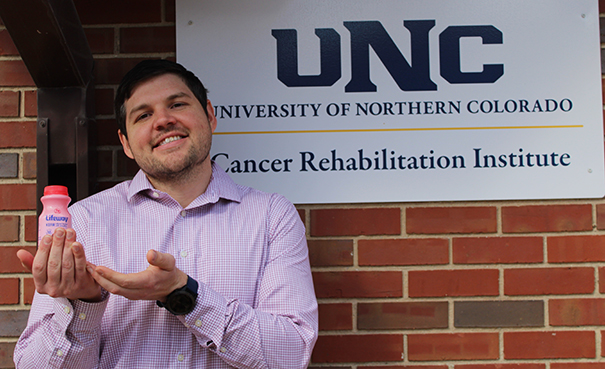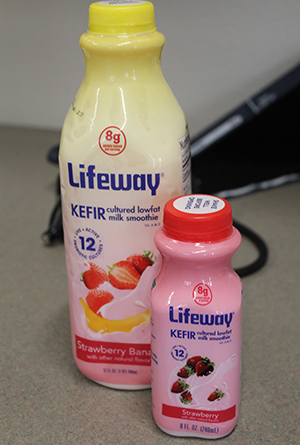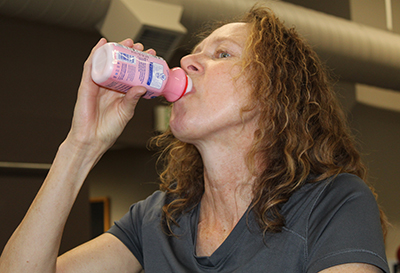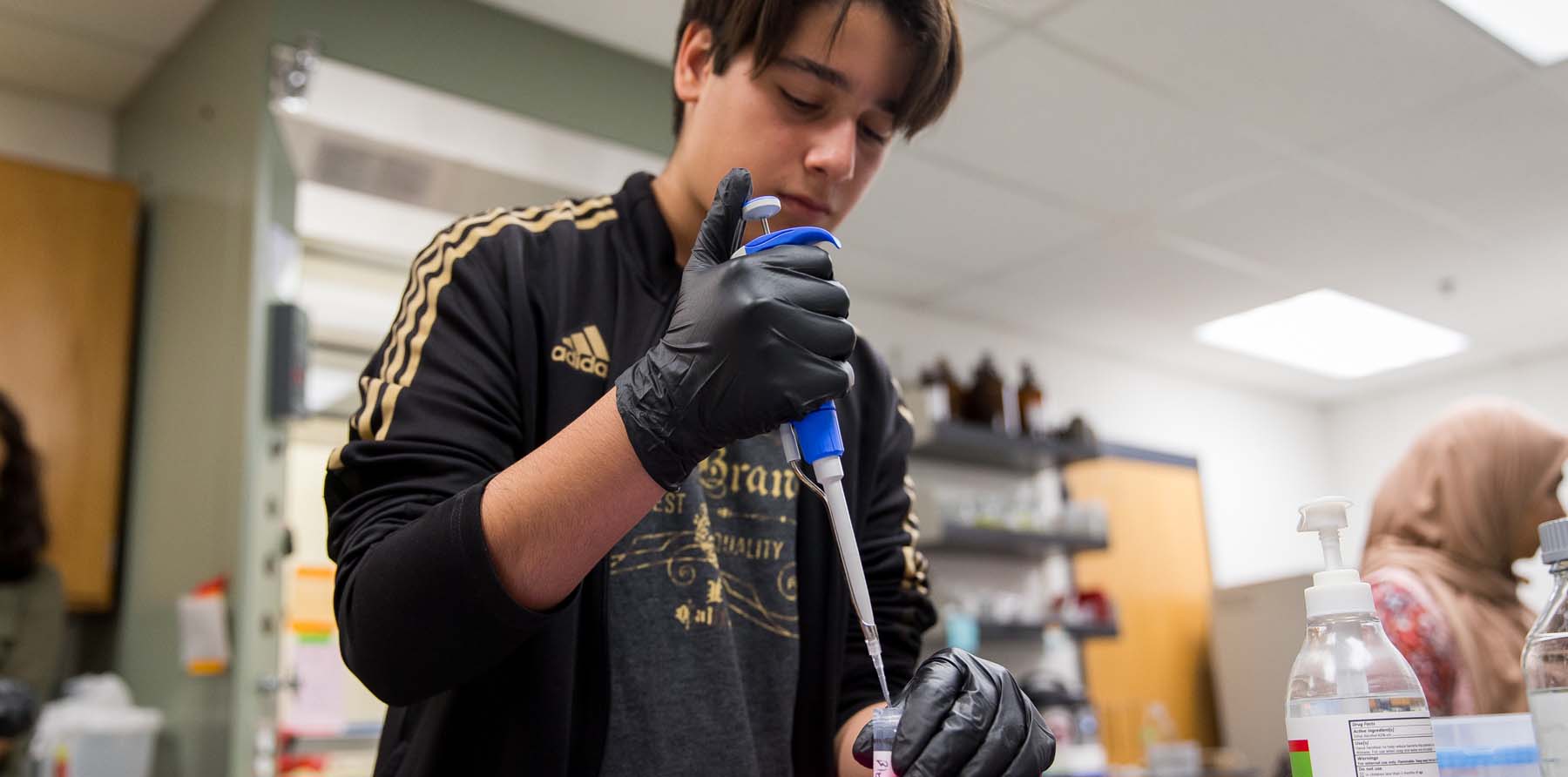
Slightly sour with a tart taste, kefir isn't exactly the number one go-to food for a snack; however, this fermented milk beverage may help reduce inflammation and improve the gut and digestive system of cancer patients who have a chemotherapy history.
Earlier this year, uBiome awarded a $7,000 grant to researchers at the University of Northern Colorado's Cancer Rehabilitation Institute (CRI) to understand how kefir impacts the microbiome of cancer survivors who underwent chemotherapy and/or radiation treatment.
Kefir is a fermented milk beverage with low levels of lactose and high levels of probiotics that stay in your intestines and gut longer, so it's like a "super-powered yogurt that sticks," according to Laura Stewart, Ph.D., a professor of Sport and Exercise Science.

Above: Bottles of flavored kefir given to cancer patients at UNCCRI.
Photo at top: UNC doctoral student Peter Smoak holds a bottle of kefir outside the UNC Cancer Rehabilitation Institute (UNCCRI). Smoak is leading the study on the potential impacts kefir has on the microbiomes of cancer patients who have a history of chemotherapy.
 It's not uncommon for cancer survivors to have an altered, intestinal microbiome because
of the chemotherapies and other treatments they undergo. These treatments can cause
inflammation and alter immune functionality and gut dysbiosis in cancer survivors;
thus, affecting their recovery. Kefir may be the solution to these issues due to promoting
healthier microbiomes. (Photo at left: Patient drinking strawberry-flavored kefir at the UNCCRI)
It's not uncommon for cancer survivors to have an altered, intestinal microbiome because
of the chemotherapies and other treatments they undergo. These treatments can cause
inflammation and alter immune functionality and gut dysbiosis in cancer survivors;
thus, affecting their recovery. Kefir may be the solution to these issues due to promoting
healthier microbiomes. (Photo at left: Patient drinking strawberry-flavored kefir at the UNCCRI)
Over the next 12 weeks, the researchers, led by doctoral student, Peter Smoak, will give kefir to 12 cancer survivors at the CRI and compare them to another group of 12 cancer survivors who aren't ingesting the beverage so as to compare the potential impacts of kefir.
 "I think there have been a lot of probiotic-type studies in cancer-survivor populations,
but this is probably one of the first ones that’s done with kefir used as a recovery
beverage in a physically active cancer survivor," said Stewart (photo at right). "I know it is a small population [being tested], but we can glean a lot from how
these individuals respond [to the kefir]."
"I think there have been a lot of probiotic-type studies in cancer-survivor populations,
but this is probably one of the first ones that’s done with kefir used as a recovery
beverage in a physically active cancer survivor," said Stewart (photo at right). "I know it is a small population [being tested], but we can glean a lot from how
these individuals respond [to the kefir]."
Founded in 2012, uBiome’s mission is to transform the science of the microbiome into useful products and services that improve people’s lives. This research is also supported by The School of Sport and Exercise Science and UNC’s Research, Dissemination & Faculty Development Program.
Listen to Stewart discuss the grant and research in more depth in the following podcast:
Listen to Smoak's Bear-in-Mind Podcast episode for further insights of his research on the possible benefits of kefir for patients with chemotherapy history.
Follow along with Stewart's podcast with the below transcript:
—Produced by Katie-Leigh Corder
More Stories
-
Daniel Garza’s Journey from Platteville, Colorado, to Stellenbosch, South Africa
Este artículo no está en español.
-
Crafting a Home Field Experience
Este artículo no está en español.
-
Doctoral Candidate Tackles Social Issues Using Data Science
Este artículo no está en español.
-
Bridging the Gap Between High School and College: Frontiers of Science Institute
Este artículo no está en español.





